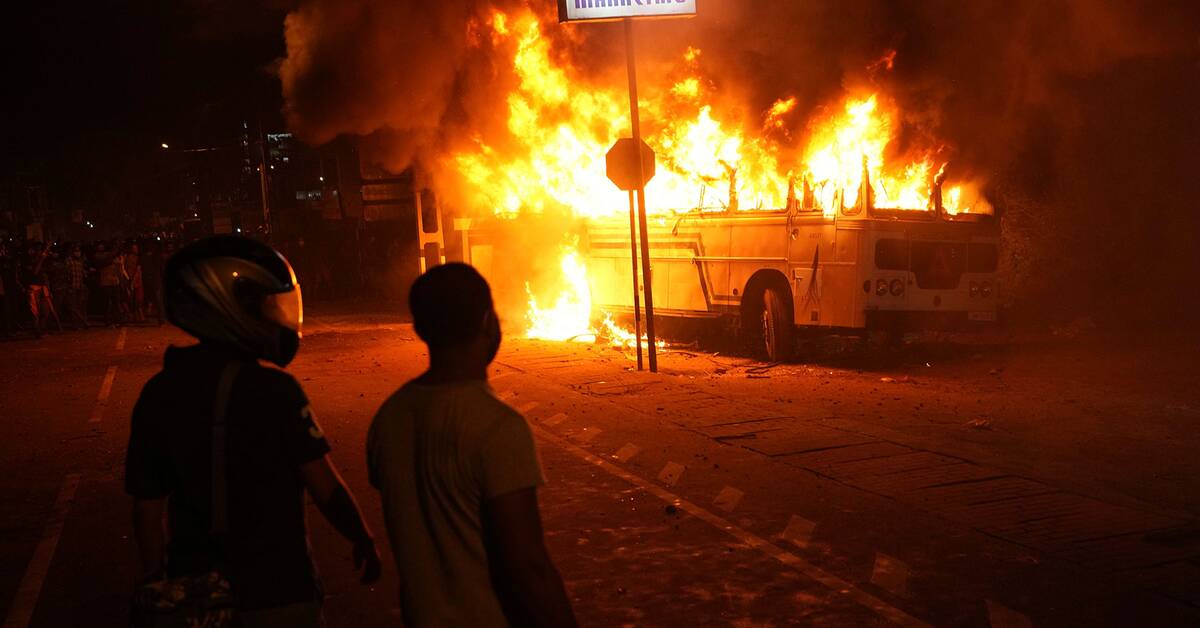The pandemic hit Sri Lanka's already strained economy hard.
In the past year, inflation in the country has been at a record high and the currency shortage has made it difficult to pay for imports of basic goods and fuel.
Requires the resignation of the President
In an attempt to stabilize the situation, the country introduced a state of economic emergency, which entailed strict rationing of goods and strict price control.
Regular power outages for up to 13 hours have affected residents, in an attempt to save energy.
As the lives of the population have been increasingly affected, support for the incumbent president has declined.
Major demonstrations are taking place across the country and on Thursday people gathered outside the president's residence in the capital Colombo to demand his resignation.
Curfew until Monday
On Friday, President Gotabaya Rajapaksa declared a state of emergency following widespread calls for public protests in the country on Sunday.
On Saturday, word came of a general curfew ending on Monday.
Rajapaksa says the state of emergency is necessary to protect public order and maintain the necessary necessities.
Appeals the decision
Hundreds of lawyers are said to have called on President Gotabaya Rajapaksa to lift the state of emergency in order to ensure that freedom of expression is respected.
"They have failed to understand the people's ambitions and to empathize with the people's suffering," wrote members of the Sri Lankan Bar Association in their appeal.

